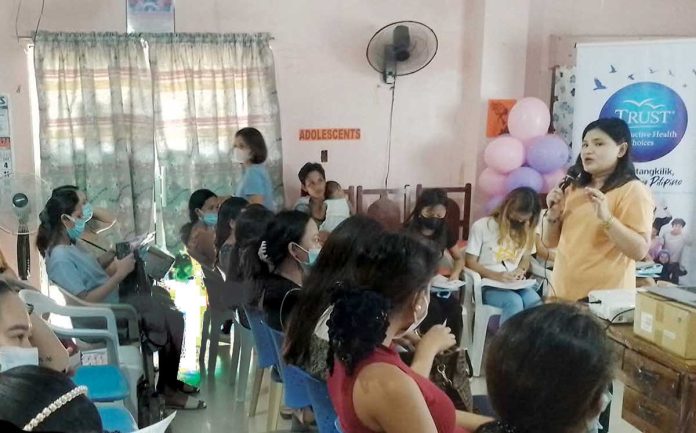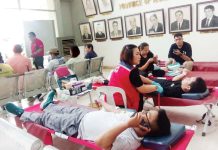
ILOILO City – A 10-year-old girl giving birth has become the most alarming case in a growing social concern that Iloilo City health authorities say requires immediate, community-wide intervention.
The Iloilo City Health Office (CHO) has flagged social media exposure and inadequate parental guidance as key drivers behind the problem of teenage pregnancy, despite a slight year-on-year drop in reported cases.
From January to March 2025, the CHO recorded 120 cases — down from 144 during the same period in 2024 — but the figure remains troubling, especially with 109 girls already having delivered their babies.
“Each case tells a story of a girl forced to grow up too soon,” said Florence Joy Rubino, Nurse IV and focal person for the Adolescent Health Program under the CHO.
“Social media opens up a world of information and misinformation. Without proper adult guidance, adolescents are left to interpret and experiment on their own,” Rubino warned.
This heightened curiosity, when combined with a lack of open family discussions about sexuality, places them at significant risk, she said.
The CHO has observed that most of the cases are concentrated in the city’s more populous districts, such as Molo and Arevalo.
The office warns that the prevalence of early pregnancies could worsen without proper sex education, open family discussions, and stronger community engagement.
The influence of social media is believed to be compounded by the lack of basic sex education and an unwillingness among many parents to talk openly about reproductive health. In some households, discussions about the human body or relationships are still considered taboo.
Rubino advocates for parents to use proper anatomical terms when referring to sexual organs in everyday conversation with their children.
“Using the correct terms helps normalize the topic and empowers children with the language to communicate clearly and confidently. This is vital in preventing sexual abuse, where silence and confusion often become enablers,” she explained.
The CHO is also urging families to seek professional help from local health centers if they notice behavioral changes in their children. These centers are equipped with trained personnel and assessment tools designed to identify physical, emotional, and psychological issues among adolescents.
One such tool is the HEEADSSS assessment, a globally recognized screening guide that stands for Home, Education/Employment, Eating, Activities, Drugs, Safety, Suicide/Depression, and Sexuality. This structured interview method helps health professionals understand a young person’s background, experiences, and risk factors.
Based on findings, the adolescent can be referred to specialized government agencies for support and intervention.
“In many cases, the root of the problem is not just sexual curiosity. It’s emotional neglect, abuse, poverty, or even mental health struggles that aren’t being addressed,” Rubino added.
The Department of Health classifies adolescents as individuals between the ages of 10 and 19.
As Iloilo City’s youth face increasing exposure to global media trends, Rubino said the responsibility lies not just with parents but with schools, communities, and local government units as well.
“There needs to be a coordinated approach. We can’t leave our children to navigate such complex issues on their own. Education, empathy, and engagement are the keys to preventing more teenage pregnancies and building a healthier future for our youth,” she said./PN





